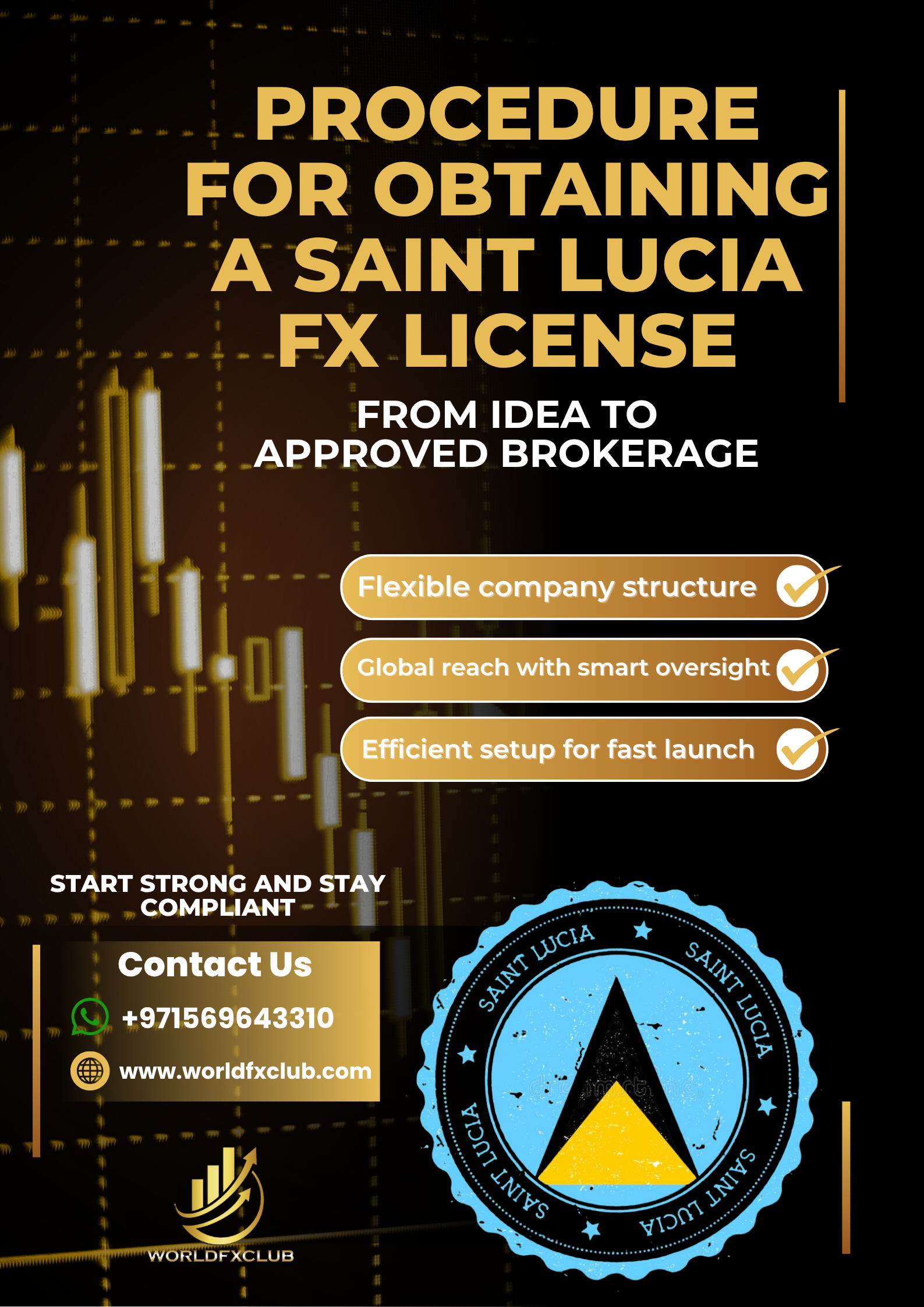Why Saint Lucia Is Emerging as a Forex Licensing Hub
Saint Lucia has rapidly become a favorite destination for brokers and fintech entrepreneurs looking to secure a cost-efficient and globally recognized FX license. The island’s International Business Corporation (IBC) framework provides flexibility, confidentiality, and access to international banking options all while maintaining a light regulatory structure that encourages innovation and growth.
It’s not just about regulation, it’s about reputation and reach. Saint Lucia offers both, making it a magnet for brokers aiming to operate globally without facing the heavy costs seen in Europe or the UAE.
Step 1: Company Incorporation
The journey begins with incorporating a Saint Lucia IBC. This entity serves as your legal foundation for obtaining the FX license. You’ll need a company name approval, at least one director and shareholder (they can be the same person), and a registered local agent.
The incorporation process is smooth, typically completed within a few working days. What’s impressive is the minimal capital requirement: you can start lean and scale fast. That speed and simplicity attract entrepreneurs who value agility in today’s trading landscape.
Step 2: Preparing the Required Documents
Saint Lucia’s financial regulators focus on transparency and legitimacy. To proceed, you’ll need:
- A detailed business plan outlining your FX operations and target markets
- Due diligence documents for all directors and shareholders (passports, proof of address, and CVs)
- Financial projections and AML/KYC policies
Each document builds credibility. It tells regulators that your business is serious, compliant, and ready to contribute to Saint Lucia’s growing financial ecosystem.
Step 3: Applying for the FX License
Once your IBC is established and the documents are ready, your next move is the application to the Financial Services Regulatory Authority (FSRA). The FSRA assesses your company’s structure, risk policies, and operational plans before granting the license.
The approval timeline usually spans 4 to 6 weeks, depending on the completeness of your file. The process might seem administrative, but in reality, it’s your gateway to legitimacy, the bridge that transforms your business from local to global.
Step 4: Setting Up Operations and Banking
After obtaining the license, you’ll need to open an international business account, establish your trading infrastructure, and finalize your payment processing setup. Saint Lucia’s network of banking partners and fintech-friendly institutions makes this stage seamless.
This is where your business turns operational when the numbers on paper start converting into real-world trades and client accounts. It’s the stage where ideas meet execution.
Step 5: Ongoing Compliance and Renewals
Every licensed entity in Saint Lucia must maintain annual compliance through filings, renewals, and AML audits. These requirements keep your license active and preserve your company’s good standing with the FSRA.
It’s not just a formality, it’s your reputation in motion. Staying compliant ensures you remain trusted by clients and partners worldwide.
Final Thoughts
Obtaining a Saint Lucia FX license isn’t complicated, it’s strategic. The island offers one of the best combinations of flexibility, credibility, and affordability in the global financial landscape. Whether you’re a new broker or an established fintech firm, Saint Lucia gives you the structure to operate legally while scaling confidently.
If you’re planning to start your own brokerage or want to understand how Saint Lucia compares to other jurisdictions, drop your questions below or message directly on WhatsApp: HERE . Let’s simplify your licensing journey together.

